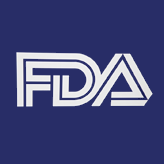FDA Revokes Avastin Approval for Breast Cancer Indication
The US Food and Drug Administration announced today that it has revoked the approval of bevacizumab for breast cancer due to the potentially life-threatening side effects associated with the treatment. It was approved for metastatic breast cancer in February 2008, but data later showed that along with an increase in side effects, there was no increase in overall survival.

The US Food and Drug Administration announced today that it has revoked the approval of bevacizumab for breast cancer due to the potentially life-threatening side effects associated with the treatment. It was approved for metastatic breast cancer in February 2008, but data later showed that along with an increase in side effects, there was no increase in overall survival.
The original indication for the bevacizumab involved its use in combination with paclitaxel for chemotherapy-naive patients with HER2-negative metastatic breast cancer. The risks associated with the drug include severe high blood pressure; bleeding and hemorrhaging; heart attack or heart failure; and the development of perforations in different parts of the body such as the nose, stomach, and intestines.
"This was a difficult decision. FDA recognizes how hard it is for patients and their families to cope with metastatic breast cancer and how great a need there is for more effective treatments. But patients must have confidence that the drugs they take are both safe and effective for their intended use," said FDA Commissioner Margaret A. Hamburg, MD, in a press release. "After reviewing the available studies it is clear that women who take Avastin for metastatic breast cancer risk potentially life-threatening side effects without proof that the use of Avastin will provide a benefit, in terms of delay in tumor growth, that would justify those risks. Nor is there evidence that use of Avastin will either help them live longer or improve their quality of life."
Among other sources, the FDA's decision is based on data from several clinical trials.
The drug was initially approved under the FDA's accelerated approval program, which allows a drug to be approved based on data that are not sufficiently complete to permit full approval. However, if the clinical trials do not justify the continued approval of the drug or a specific drug indication, the agency may revoke its approval.
In the case of Avastin, the accelerated approval was based on promising results from one study that suggested that the drug could provide a meaningful increase in progression-free survival. Though the drug showed an increase in that regard, it showed no increase in overall survival or quality of life.
Avastin will still remain on the market as an approved treatment for certain types of colon, lung, and kidney cancers, and for glioblastoma multiforme. It has also shown, in the OCEANS and ICON7 trials, promise in the treatment of ovarian cancer.
“FDA is committed to working with sponsors to bring promising cancer drugs to market as quickly as possible using tools like accelerated approval,” Dr. Hamburg said. “I encourage Genentech to consider additional studies to identify if there are select subgroups of women suffering from breast cancer who might benefit from this drug."